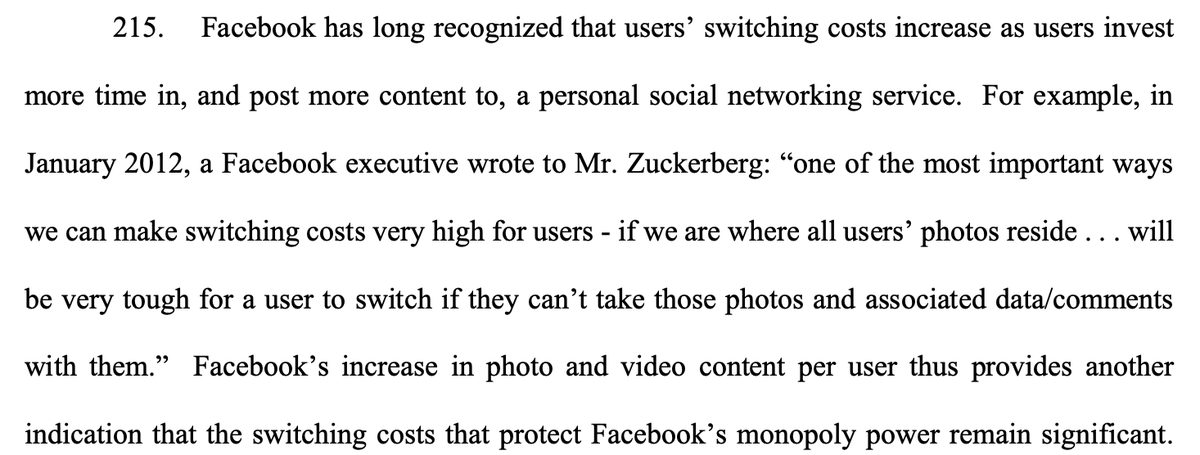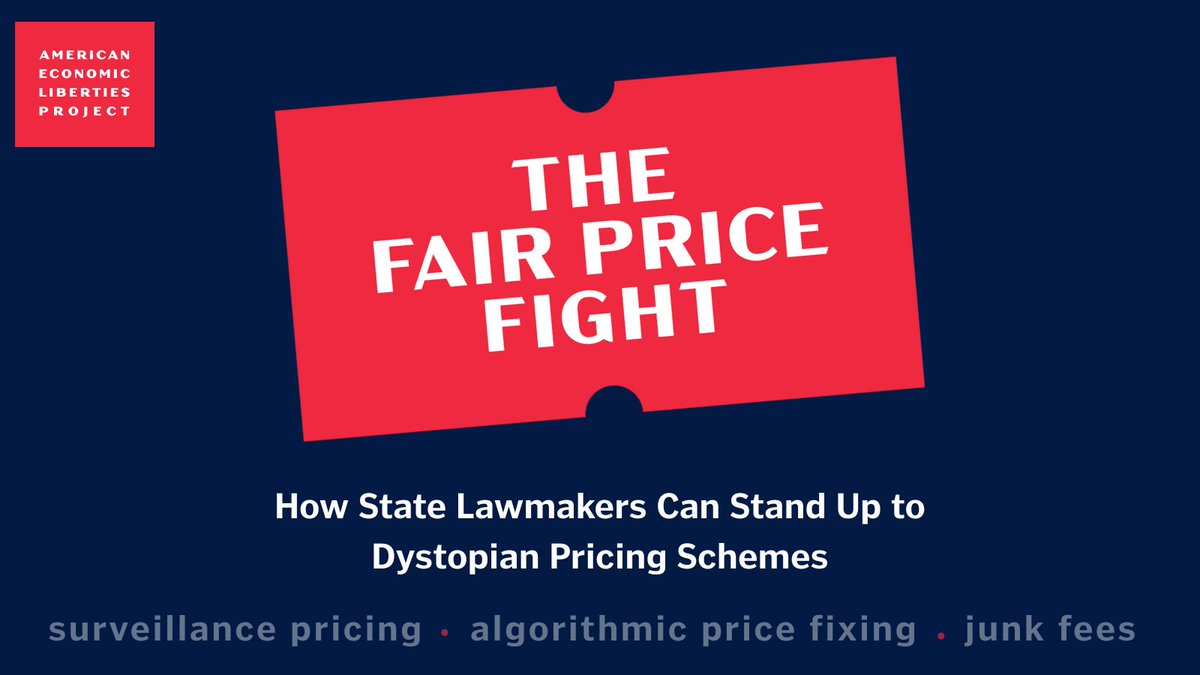3/ First, the complaint shows that @Facebook has dominated the social media market whether measured by time spent or daily active users since 2011. 

4/ @Facebook likes to play dumb — but the data *they* use to track their own performance shows just how dominant they are. 

5/ Second, the @FTC provided direct evidence of @Facebook’s durable monopoly power, including the fact that @Facebook has enjoyed record profits despite widespread consumer dissatisfaction. 



6/ A @Facebook exec, who apparently doesn’t know you’re not supposed to write down your evil plan, explained clearly how @Facebook could maintain its power by making it increasingly hard for users to switch to another platform. 

• • •
Missing some Tweet in this thread? You can try to
force a refresh
















